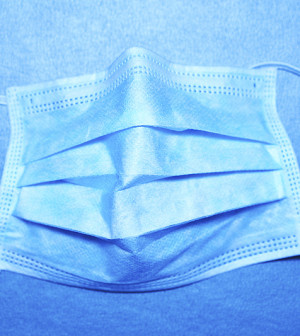- Could Artificial Sweeteners Be Aging the Brain Faster?
- Techniques for Soothing Your Nervous System
- Does the Water in Your House Smell Funny? Here’s Why
- Can a Daily Dose of Apple Cider Vinegar Actually Aid Weight Loss?
- 6 Health Beverages That Can Actually Spike Your Blood Sugar
- Treatment Options for Social Anxiety Disorder
- Understanding the Connection Between Anxiety and Depression
- How Daily Prunes Can Influence Cholesterol and Inflammation
- When to Take B12 for Better Absorption and Energy
- Epsom Salts: Health Benefits and Uses
FDA Warns of Cardiac Effect When Heart Drug Mixed With Hepatitis C Meds


A potentially life-threatening slowing of the heart can occur when the common heart drug amiodarone is taken with new hepatitis C medications, the U.S. Food and Drug Administration warns.
The dangerous slowing of the heart — called symptomatic bradycardia — can occur when amiodarone is taken with the hepatitis C drugs Harvoni (ledipasvir/sofosbuvir) or Sovaldi (sofosbuvir) and combined with another direct-acting antiviral for the treatment of hepatitis C.
Harvoni and Sovaldi are two new medicines recently approved by the FDA to help rid the body of hepatitis C infection. If left untreated, hepatitis C infection can damage the liver and raise the odds of liver failure and liver cancer.
Amiodarone is commonly used to treat heartbeat irregularities, the FDA noted in a news release.
Information about the risk of the drugs used in combination is being added to the labels of Harvoni and Sovaldi, the FDA said. The agency is also telling doctors not to prescribe either Harvoni or Sovaldi combined with another direct-acting antiviral, such as the experimental drug daclatasvir or Olysio (simeprevir), to patients taking amiodarone.
The warning comes after the FDA received reports of the death of one patient from cardiac arrest and of three patients who required a pacemaker to regulate their heart rhythms after taking this combination of drugs, the agency said.
In cases where doctors have no choice but to prescribe either Harvoni or Sovaldi combined with another direct-acting antiviral drug for patients taking amiodarone, patients should be monitored in the hospital for the first 48 hours, the FDA said.
That should be followed by daily heart rate monitoring in a doctor’s office or at home for at least the first two weeks of treatment.
The FDA added that patients on amidarone who start taking either Harvoni or Sovaldi, combined with another direct-acting antiviral drug, should seek immediate medical attention if they develop signs or symptoms of symptomatic bradycardia. Those symptoms include near fainting or fainting; dizziness or light-headedness; malaise, weakness, excessive tiredness; shortness of breath, chest pains; and confusion or memory problems.
Two experts said that as use of Harvoni and Sovaldi expand, doctors will have to be on the lookout for any drug interactions.
The two hepatitis C drugs have “cure rates of greater than 90 percent,” noted Dr. David Bernstein, chief of hepatolgy at North Shore University Hospital in Manhasset, N.Y.
“More than 2,000 patients were treated in clinical trials with these medications prior to FDA approval, and in these studies there were minimal side effects and few drug-drug interactions,” he said.
However, “with the widespread use of these products in more than 100,000 patients,” isolated incidents like the ones described by the FDA have occurred, Bernstein said. So, “this FDA recommendation makes sense and should be disseminated to all physicians who are or will be treating patients with chronic hepatitis C infection,” he said.
Another expert also said that the risk to any one patient is likely rare.
“While this is a potentially devastating drug interaction in real life, it is unlikely to be a major issue,” said Dr. Douglas Dieterich, a professor of liver diseases at the Icahn School of Medicine at Mount Sinai in New York City.
“In fact, I cannot recall treating a hepatitis C patient who was on amiodarone in the last five years,” he said.
Dieterich added that “amiodarone is potentially liver-toxic and very few patients who have significant liver disease are taking it. The overall drug interaction profile of sofosbuvir is actually extremely good; better than most new medications we have seen in the hepatitis field.”
More information
The U.S. National Library of Medicine has more about amiodarone.
Source: HealthDay
Copyright © 2026 HealthDay. All rights reserved.










